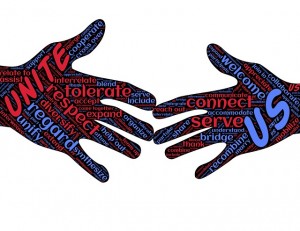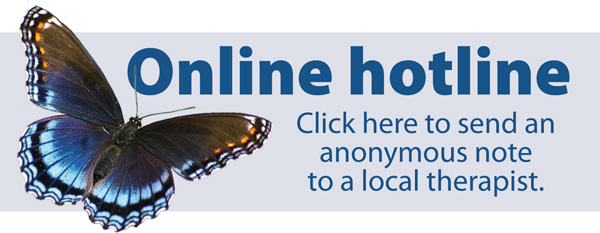Like so many other people I know, politics has become a major issue in my extended family. There have been tense conversations and some ugly Facebook comments. We’re supposed to be together for a family event soon and I’m already dreading it. What can I do to help my family avoid letting the current political situation become a wedge that drives us apart and causes a permanent rift? It feels like some people in the family truly want to fight about this and won’t accept that some of us have different opinions.
Response by Jennifer Coldiron, LCSW
When you find yourself in a political conversation with a family member whose perspective could not be further from your own, you usually have three options.
- Option 1: You handle the conversation badly and suffer the consequences. Any children present experience another contemporary example of how politics are equivalent to bitter arguments.
- Option 2: You stay silent avoiding a conversation, which may mislead others including your children to believe you agree when you don’t, or that they ought to be respectful rather than honest with family.
- Option 3: You strategically say what’s on your mind in a respectful yet candid way.
Option three sounds great, but how, you ask? First, take some deep breaths. Deep breathing persuades your body to focus, to problem-solve, and to avoid fight or flight behavior. Second, consider the following two strategies:
 This technique from the best-selling book Crucial Conversations1 is ideal for delving into politics with family. In order to practice this approach, the author wants you to “Remember Your ABCs”:
This technique from the best-selling book Crucial Conversations1 is ideal for delving into politics with family. In order to practice this approach, the author wants you to “Remember Your ABCs”:
- A is for Agree: First, be sure to point out an area of agreement.
- B is for Build: Then, build in elements that were left out of the discussion.
- C is for Compare: Rather than suggesting someone is wrong, suggest that you differ.
By starting with a heartfelt, “I agree…” statement, you move the conversation’s dynamics away from the typical tug of war towards a dialogue. If you have trouble finding an element of agreement, ask “what led you to this belief?” Then, you may find it easier to empathetically agree on the importance of, say, safety or a bright future for children, while also sharing how your life experiences led you to a different outlook.
 Another strategy is simply to say “ouch” as if this person just unintentionally stepped on your toe2. You don’t have to remain silent whenever “political opinion” is really a hurtful stereotype or demeaning comment. You can say “ouch” and then walk away. Or say “ouch” and then explain how those words seem hurtful to you. Ouch is your go-to, acceptable four letter word for any setting.
Another strategy is simply to say “ouch” as if this person just unintentionally stepped on your toe2. You don’t have to remain silent whenever “political opinion” is really a hurtful stereotype or demeaning comment. You can say “ouch” and then walk away. Or say “ouch” and then explain how those words seem hurtful to you. Ouch is your go-to, acceptable four letter word for any setting.
The personal is political and politics are personal. Children are listening and learning. You can defend your beliefs while also caring for a relationship and safeguarding your mental health. Speak up, without remorse or regret, in a respectful yet candid way.
Jennifer Coldiron is a licensed, certified social worker serving as the School Based Liaison Manager for Ozark Guidance. She coordinates professional development and parenting education, as well as, student leadership programs throughout school districts receiving Ozark Guidance school-based mental health services.
Footnotes:
- Crucial Conversations© is a New York Times bestselling book by Kerry Patterson, Joseph Grenny, Ron McMillian, and Al Switzler that offers skills for fostering open dialogue around high-stakes, emotional, or risky topics including examples for the authors’ own experiences as parents.
- “Ouch: That Stereotype Hurts!” is a book written by Leslie Aguilar of over ten strategies to use to respectfully respond to stereotypes. She was moved to write the book after years of staying silent when she wanted to speak up.
Therapists at Ozark Guidance would be happy to answer your questions and read what’s on your mind. Click the butterfly icon below to fill out an anonymous submission form with your question or concern. The form contains NO identifying information and is designed to give local women an online place to share concerns with a person qualified to offer feedback.
 Disclaimer: This RESPONSE does not provide medical advice It is intended for informational purposes only. It is not a substitute for professional medical advice, diagnosis or treatment. Never ignore professional medical advice in seeking treatment because of something you have read on nwaMotherlode or Ozark Guidance websites.
Disclaimer: This RESPONSE does not provide medical advice It is intended for informational purposes only. It is not a substitute for professional medical advice, diagnosis or treatment. Never ignore professional medical advice in seeking treatment because of something you have read on nwaMotherlode or Ozark Guidance websites.

